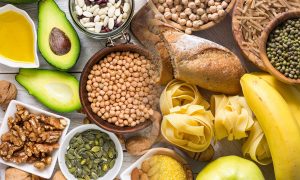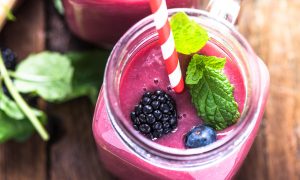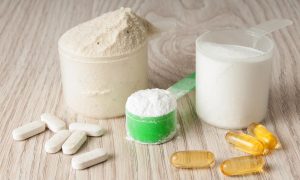8 Nutrients And Supplements For A Healthy Heart

|
|
When it comes to our health and well-being, sadly, it’s safe to say that, for the most part at least, the majority of us are simply not doing all that we can in order to ensure we’re looking after our health properly. Obesity levels are sky high, diabetes levels are constantly on the rise, the number of diet and lifestyle-related cancers are increasing, and, perhaps most worryingly of all, is the fact that the world’s biggest killer – cardiovascular disease, is also on the up. Our hearts and cardiovascular systems are incredibly complex and need a great deal of care and attention in order for them to perform at their best. Heart disease, also known as cardiovascular disease is the biggest killer in the entire world, and is responsible for more deaths, both male, and female, than any other medical condition. Despite the fact that it is considered so harmful and dangerous, a huge percentage of us still insist on eating copious amounts of junk food, not getting enough exercise, and making unhealthy dietary and lifestyle choices in the process. As you’ve probably guessed, some of the keys associated with maintaining a healthy heart and cardiovascular system are healthy diets and healthy lifestyles. In some cases however, various supplements could also prove incredibly useful, which is what we’ll be focussing on right now. Here we’ll be taking a detailed look at 8 nutrients and supplements that are considered essential for building and maintaining a healthy heart.
EPA and DHA

EPA and DHA, are fish oil supplements that are packed full of essential fatty acids. These supplements have a wide range of various health and fitness benefits, including the fact that they are incredibly healthy and beneficial for the heart. There have been hundreds upon hundreds of studies carried out on these supplements, that have all pointed to the fact that they offer a number of protective qualities in regards to the heart. For example, EPA and DHA fish oil supplements have been found to greatly reduce blood triglyceride levels by as much as 30%, thus greatly reducing harmful LDL cholesterol levels. There are many mechanisms in which fish oil supplements work to promote heart health, including the fact that it can prevent blood clots, can improve heart rhythm, and can prevent the build up of plaque within the arteries, which can cause heart attacks, heart disease, hypertension, and strokes. Not only that, but these fish oil supps can also help promote HDL cholesterol, which is healthy and very beneficial.
Nitrate supplements
Nitrates are commonly found in a number of vegetables including beets and beetroot, plus in leafy green vegetables. Nitrates have consistently been found to be highly beneficial for the body, particularly when it comes to cardiovascular health. The main reason for this is that they help to boost nitric oxide synthesis within the body. Nitric oxide helps to boost circulation, by acting as a vasodilator – dilating the blood vessels and allowing more blood to flow through them. This in turn boosts circulation and helps reduce blood pressure as well. Not only is this beneficial for the heart, it is also beneficial from an exercise standpoint as well, as increased NO levels have been found to increase athletic performance. The reason for this is that, as the Nitric Oxide boosts circulation, it allows more oxygen and nutrient rich blood to be transported around the body and be supplied to our cells. As these cells absorb more of the nutrients, the muscles therefore have more energy, and can work harder and for longer. Not only should you try to consume a diet rich in nitrate-rich vegetables, you may also wish to consider using a NO supplement.
Garlic

People often steer clear of garlic supplements as they’re worried that they will taste like raw garlic and will give them bad breath. In reality however, garlic supplements are commonly odourless and tasteless, making them perfectly fine to consume in supplement form. Garlic contains a compound known as hydrogen sulphide, which not only helps to reduce blood pressure, but it even helps to promote the production of brand new blood vessels. Garlic helps to enhance hydrogen sulphide signalling within the human body, which in turn has been found to greatly reduce blood pressure. Combine this with the fact that it also promotes the growth and repair of brand new arterioles and it’s no wonder why garlic has been found to greatly reduce arterial calcification. As if that wasn’t enough, garlic also helps to reduce triglyceride and LDL cholesterol levels, making it perfect for not only treating heart conditions, but also for preventing them as well. For an added bonus, garlic is also amazing for the immune system, which means that the more you consume, the less likely you will be to become ill.
Lycopene
Lycopene is actually a very potent antioxidant that is hugely underrated and underappreciated. It is commonly found in a number of fruits and vegetables, especially tomatoes. In fact, it is lycopene that gives tomatoes their distinctive red colour. Numerous studies conducted over the years have all found that individuals with high levels of lycopene within their blood, are actually far less likely to suffer from cardiovascular disease. Men in particular, with low levels of lycopene within their systems, are three times more likely to develop some form of heart condition than men with higher amounts of this antioxidant in their systems. Low plasma lycopene levels have also been heavily linked with an increase in the thickness of plaque found within the arterial walls. Lycopene is indeed available in supplement form, although if you do decide to go straight to the source and get your lycopene from tomatoes, it is worth noting that the tomatoes need to be partially cooked for the nutrient to become active, so raw tomatoes just won’t be as effective.
Niacin

Also known as vitamin B3, Niacin plays a key role in lipid and carbohydrate metabolism, when consumed in high doses. Niacin works very similarly to Nitric Oxide, in that it works as a potent vasodilator that widens the blood vessels and therefore allows more blood to be transported through them. On top of that, Niacin also works by lowering triglycerides and LDL cholesterol from the blood, whilst boosting beneficial HDL cholesterol in the process. For Niacin to be classed as truly effective, it is recommended that dosages ranging from 50 – 200mg per day, should ideally be consumed.
Vitamin K
When we talk about healthy and beneficial vitamins, we often focus on vitamins such as vitamin C, or B vitamins, and whilst there is absolutely nothing wrong with either of those vitamins, we need to remember that there are other ones out there that can be just as efficient. Vitamin K for example, is ideal as it helps to improve the flexibility of the arteries. Stiff arteries can be precursors for cardiovascular disease and can potentially be fatal. As well as greatly enhancing the flexibility of the arteries, and therefore reducing their stiffness, vitamin K can also reduce what is known as arterial calcification. Although vitamin K is present in a number of foods, especially fruits and vegetables such as prunes or kale, the drawback is that, in order for the amounts of vitamin K to be beneficial for the heart, we would need to consume vast quantities of those foods that would basically be impossible. The good news however, is that vitamin K supplements are now widely available.
Arginine

Arginine is a form of amino acid that is essential for the synthesis of Nitric Oxide. As you know, Nitric Oxide is highly beneficial for the heart and for cardiovascular health as it dilates the blood vessels and boosts circulation. However, if the body cannot utilize the Nitric Oxide, it becomes redundant. Arginine assists with NO synthesis, thereby helping to make the effects of NO much more favourable. On top of that, studies have also found that supplementation with arginine, can prevent vascular dysfunction commonly associated with high fat consumption.
Berberine
One major contributing factor for heart disease, is insulin resistance. The reason for this is that high blood glucose levels can often lead to damage to the tissue in the arteries, as well as an increase in blood pressure. Berberine however, is an AMPK activator, which allows it to function by drawing sugar and fats into the cells and ensuring that they are used directly for energy, instead of hanging around and being stored in the body, where they cause more damage than good. Not only that, but studies have also found that it could function very effectively for lowering blood glucose levels, making it ideal for individuals with intolerances to glucose, or even for people suffering with diabetes as well. Again, much like all of the other supplements on our list, berberine is also effective as it helps lower triglyceride levels and unhealthy cholesterol levels as well.














